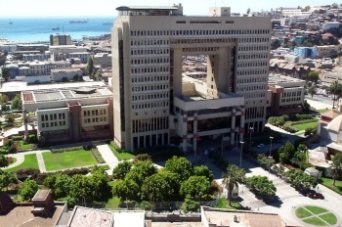- About
- Topics
- Story
- In-Depth
- Picks
- Opinion
- News
- Donate
- Signup for our newsletterOur Editors' Best Picks.Send
Read, Debate: Engage.
| topic: | Democracy |
|---|---|
| located: | Chile |
| editor: | Ellen Nemitz |
In April 26, Chileans will have the chance to choose if the country will start a process of writing a new constitution.
The decision to summon up a plebiscite, made last December by President Sebastián Piñera, is the result of the big wave of protests boosted by a small increase in metro fares in October 2019. Soon it was clear that the real point was not just some pennies, but inequality. 38 per cent of the population thinks wealth disparities are the most important reason behind the protests, according to a survey released last month by Public Studies Center (CEP, in Spanish), a non-profit foundation, and “inequality” was one of the main words used to describe the moment in October, as showed the survey "Social Thermometer".
The CEP survey interviewed almost 1.5 thousand people throughout the country and revealed that Chileans' priorities have changed. In May, urban violence was the most mentioned problem, but in the last month of the year, the main worries of the population were pensions, health, education and wages.
The results are a portrait of a decaying government: only 6 per cent of Chileans consider Sebastian Piñera a good president. The majority (82 per cent) dislikes the current leader of Chile – before the protests, a quarter of the population used to approve him. Another poll, from Cadem company, presents similar numbers: 80 per cent of disapproval rate.
In a country asking for justice to be set for 220 people eye-injured by police shots during protests (between October and November, according to Chilean Ophthalmologic Society), so does the police’s: 17 per cent of people trust the Carabineros, as they are called in Chile, the lowest rate since 2015. The trust in other institutions such as Public Prosecutor’s Office, Justice Courts, Congress, the press and even Catholic and Evangelical Churches has also fallen.
This scenario of weak institutions is fertile for a big change, including in the constitution from 1980, that is the same since Augusto Pinochet’s dictatorship – which does not guarantee basic rights such as healthcare, education and even water services.
“The entire system of protection of social rights, specifically social security, health, education, work and trade union cover is marked by a preference for private property and freedom of entrepreneurship”, said to Reuters the Constitutional lawyer Jaime Bassa, professor at the University of Valparaíso.
Right and left parties struggle now to defend their opinions of approving it or not. Both have three months to convince a not politically aligned population (72 per cent of Chileans do not identify themselves either right or as left-wing) that tends to “yes", according to CEP, a new constitution is the choice of 67 per cent of people, and 44 per cent would like it to be done by a group of people specially elected instead of a mix of elected ones and parliamentarians.
While left-wing politicians defend the new writing to advance social and human rights, right-wing parties want to reform immediately the current one. “We cannot wait through two years of uncertainty, violence, increasing unemployment, to make a new constitution from a blank page”, said deputy Catalina del Real. On the other hand, Carmen Frei, politician leading “approval” coalition, convokes all parties to be together: “it would be chaos if ‘no' wins, because this would be keeping a terrible capitalism, as well as all injustices we are seeing”.
